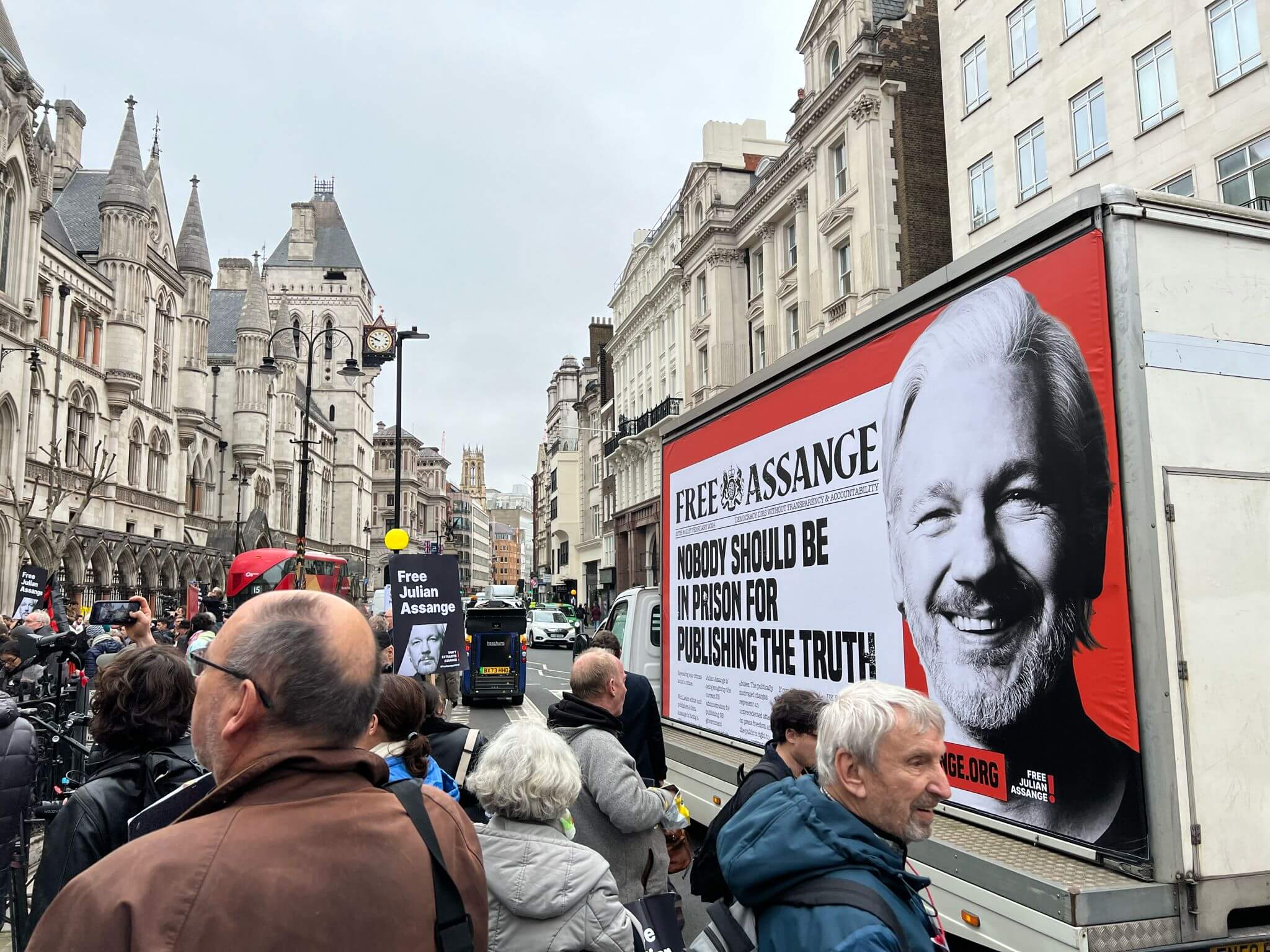Assange Verdict Adjournment Side Steps Public Backlash By Granting US Chance To Strengthen Its Case


London - The ruling by the Royal Courts of Justice to grant Julian Assange leave to challenge his extradition to the US allows the US more time to strengthen its case against the world’s most prolific whistleblower. Meanwhile, Assange has been denied bail and will continue to waste away in Belmarsh Prison in what amounts to administrative detention. His crime? Expressing his political opinion and exposing the architects of mass murder and illegal wars across the world.
Assange’s courageous actions, at the expense of his health and safety, sought accountability and justice against those in power, and shed light on the atrocities committed during the War on Terror by the US, UK and Western allies. By granting the US and UK more time to provide ‘suitable evidence’ against Assange, the court’s decision is an attempt at quashing any possibility of victory for Assange and shielding the US and UK from any form of accountability for the crimes committed in the War on Terror.
His case once again highlights the unbalanced UK-US Extradition Treaty of 2003. Ratified without Parliamentary scrutiny and approval, the treaty severely undermines the sovereignty of the UK's judicial system. Under this treaty, the US can demand extradition without providing evidence of guilt, while the UK must meet rigorous standards to extradite individuals from the US.
Anas Mustapha, Head of Public Advocacy at CAGE said:
“The decision of the courts to grant Julian Assange leave to appeal his extradition to the US but only on the basis that the US and UK are unable to provide suitable assurances to the court is the latest episode in the open conspiracy to silence, arguably, the most consequential whistleblower in modern times. That Assange continues to be denied bail highlights the complicity of the judicial system in his persecution for simply exercising his right to free speech.”
Download Files








